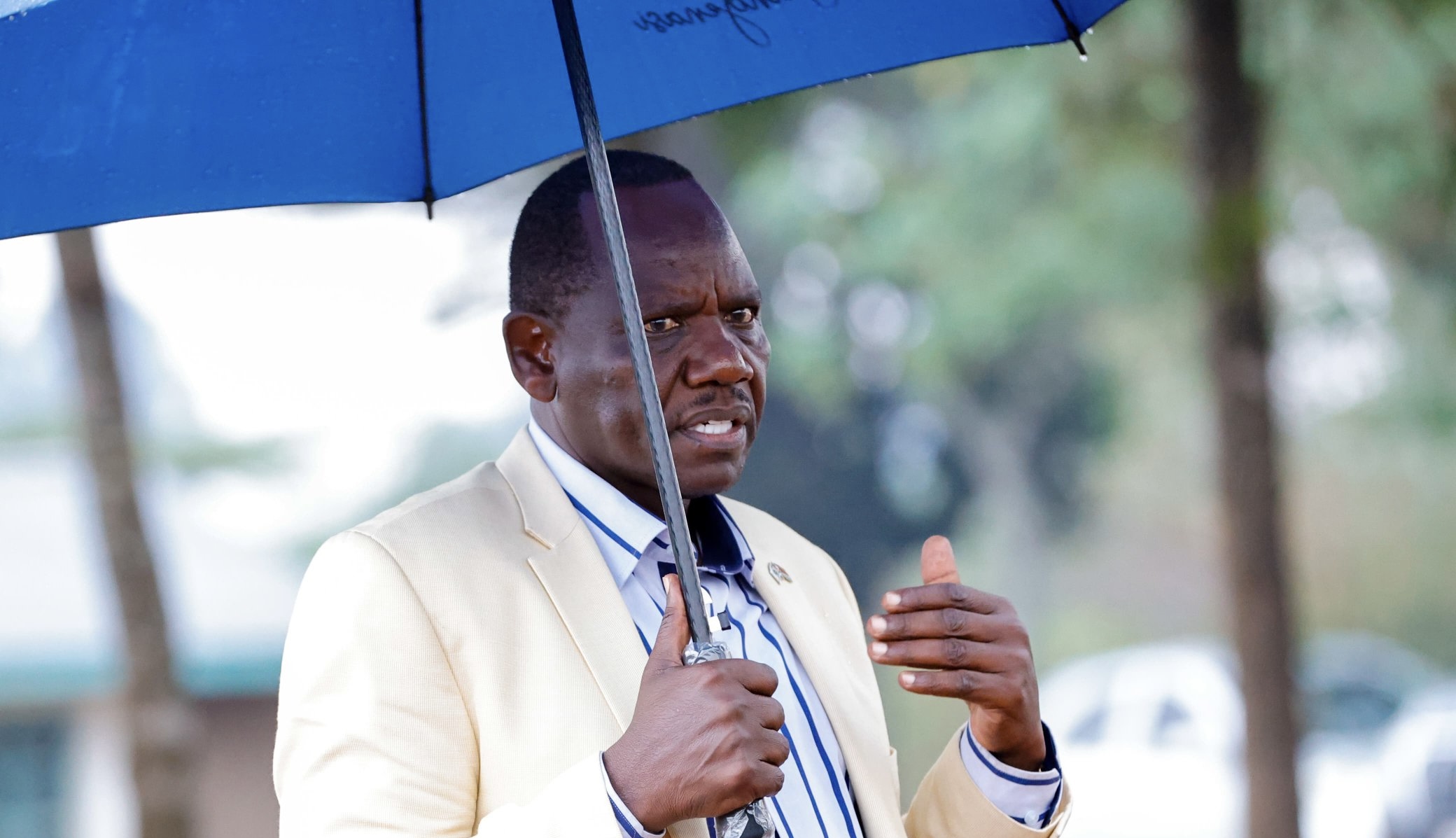Investigations
Questions Mount as Governor Bii Absent from Finland-Canada Student Fraud Charges

Victims demand answers as current Uasin Gishu leader escapes prosecution despite scandal occurring under his watch
The ongoing trial of the Sh1.1 billion Finland and Canada Education Programme scandal has taken a dramatic turn, with victims and observers questioning why current Uasin Gishu Governor Jonathan Bii has not been included among the accused persons.
While former Governor Jackson Mandago, now Senator, alongside county officials Meshack Rono and Joshua Lele face charges of misappropriating public funds, testimonies from victims reveal that substantial payments were made during Bii’s tenure as governor, raising uncomfortable questions about accountability.
Court testimony from victim Eliud Kipchirchir paints a troubling picture.
He revealed paying Sh732,000 between October 2022 and January 2023 for his sister’s education in Canada – well after Bii had assumed office.
The payments included Sh600,000 deposited into the Uasin Gishu Overseas Education Trust fund account in October 2022, followed by additional amounts for medical expenses and visa applications.
“I heard about the programme when the new governor took office,” Kipchirchir testified, a statement that directly implicates the current administration’s involvement in soliciting funds from unsuspecting parents.
Another victim, Daniel Kiplagat, paid a staggering Sh2.43 million for his two children between July and November 2022 – again during Bii’s tenure.
Neither child received admission letters or traveled abroad, and no refunds have been issued.
The most damning testimony reveals how Governor Bii handled the mounting pressure from desperate parents.
In April 2023, after parents demanded answers, Bii called a meeting where the shocking truth emerged: no money had been sent to Canada.
“Governor Bii promised to look into the matter and find an amicable solution, whether to proceed with the programme or make a refund,” Kipchirchir testified.
But by July 2023, parents were informed that there was no money in the account for refunds.
This revelation raises critical questions: If Governor Bii was aware of the fraud by April 2023, why did he not immediately report it to law enforcement?
What happened to the investigation team he purportedly established? And most importantly, where did the millions collected under his watch disappear to?
The victims’ frustration is palpable. “Honestly, I hold him responsible. I am surprised he is not among the accused persons, and I wish he could be here,” Kipchirchir stated during cross-examination.
This sentiment reflects a broader concern about selective prosecution.
While it’s understandable that Mandago, as the architect of the scheme, faces charges, the continued collection of funds and failure to act decisively when the fraud was discovered arguably makes the current administration complicit.
Former Deputy Governor John Baroro’s announcement that only Sh1.8 million remained in the account when the new government took office further complicates the narrative.
It means millions of shillings vanished during the transition period or early months of Bii’s administration.
The absence of Governor Bii from the suspect list raises uncomfortable questions about the investigation’s thoroughness.
Did investigators examine all financial transactions during his tenure?
Were proper procedures followed in accounting for the missing funds?
Has political consideration influenced prosecutorial decisions?
Behind the legal technicalities and political maneuvering are real families whose dreams have been shattered.
Parents sold property, borrowed money, and made tremendous sacrifices believing their children would receive world-class education abroad.
Instead, they’ve been left with empty promises and empty bank accounts.
The continuing testimony of victims like Kipchirchir and Kiplagat serves as a stark reminder that justice delayed is justice denied. Their children have lost precious years, and the families face financial ruin.
As the trial continues, several critical questions remain unanswered:
Why has Governor Bii not been called to account for funds collected under his administration?
What role did his government play in perpetuating the scheme?
Were proper due diligence procedures followed before continuing to collect payments?
And most crucially, what happened to the investigation he promised?
The case resumes on August 4 and 5, but for the victims and the wider public, the absence of the current governor from the proceedings represents a troubling gap in the pursuit of justice.
True accountability requires that all those responsible – regardless of their current positions – face the consequences of their actions or inactions.
Until Governor Bii provides satisfactory answers to these questions, the shadow of the Finland-Canada scandal will continue to hang over Uasin Gishu County, serving as a reminder that in Kenya, political office should not be a shield against accountability.
Kenya Insights allows guest blogging, if you want to be published on Kenya’s most authoritative and accurate blog, have an expose, news TIPS, story angles, human interest stories, drop us an email on [email protected] or via Telegram
-

 Grapevine2 weeks ago
Grapevine2 weeks agoRussian Man’s Secret Sex Recordings Ignite Fury as Questions Mount Over Consent and Easy Pick-Ups in Nairobi
-

 News1 week ago
News1 week agoTHE FIRM IN THE DOCK: How Kaplan and Stratton Became the Most Scrutinised Law Firm in Kenya
-

 Investigations1 week ago
Investigations1 week agoMulti-Million Dollar Fraud: Three Kenyans Face US Extradition in Massive Cybercrime Conspiracy
-

 Economy1 week ago
Economy1 week agoIran Demands Arrest, Prosecution Of Kenya’s Cup of Joe Director Director Over Sh2.6 Billion Tea Fraud
-

 Business1 week ago
Business1 week agoA Farm in Kenya’s Rift Valley Ignites a National Reckoning With Israeli Investment
-

 Africa2 weeks ago
Africa2 weeks agoFBI Investigates Congresswoman Ilhan Omar’s Husband’s Sh3.8 Billion Businesses in Kenya, Somalia and Dubai
-

 Grapevine4 days ago
Grapevine4 days agoA UN Director Based in Nairobi Was Deep in an Intimate Friendship With Epstein — He Even Sent Her a Sex Toy
-

 Politics2 weeks ago
Politics2 weeks agoSifuna, Babu Owino Are Uhuru’s Project, Orengo Is Opportunist, Inconsequential in Kenyan Politics, Miguna Says
















